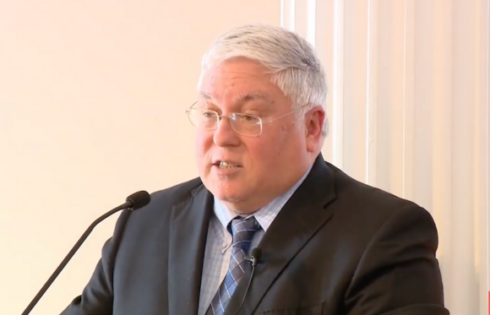
President Biden should ‘focus on confronting the problems with college affordability head-on’
The New York Times editorial board, a group of opinion journalists employed by the paper, came out against blanket student loan forgiveness in an essay on May 14.
More than 45 million people now hold more than $1.7 trillion in debt, most owed to the federal government, The Times stated. Approximately one-third of the debt will never be paid off, according to an estimate by the federal Department of Education.
“Canceling this debt, even in the limited amounts that the White House is considering, would set a bad precedent and do nothing to change the fact that future students will graduate with yet more debt – along the blind hope of another future amnesty,” the board wrote.
Cancellation for all would be hugely “regressive,” according to an analysis by the Brookings Institution, the board stated. That means that it would benefit those of higher income disproportionately and increase economic inequality.
“Most debt is held by higher-income households, and so any amount of universal forgiveness will benefit them disproportionately,” The Times stated.
Instead, the Biden administration should focus its “finite resources and political capital” on making higher education more affordable and assisting loaners in greatest need.
There are proven means to do this, though they have been underfunded and deemphasized. A more limited approach such as income-based debt forgiveness would be more prudent and feasible, according to The Times. The board also suggested that legislators could pass laws that make bankruptcy more attainable for student borrowers, similar to holders of credit card debt.
The Department of Education should also aggressively target “predatory schools” that charge students without offering valid degrees or valuable skills, it stated. This could be done in part by measures that “hold schools accountable for the gainful employment of their graduates — a measure aimed at for-profit colleges,” the board wrote.
Inflating college tuition is also part of the problem, so the administration should “focus on confronting the problems with college affordability head-on,” the board stated.
The editorial board also noted that the president may not have the authority to cancel debt by executive order, which would tie up the attempted political act in the courts for years. Additionally, if President Biden executes a debt reduction plan that voters consider unfair, the Democrats might lose political power.
In summary, debt cancellation for all “is legally dubious, economically unsound, politically fraught and educationally problematic,” the board wrote.
MORE: Student loan cancelation would raise college costs
IMAGE: Osugi/Shutterstock
Like The College Fix on Facebook / Follow us on Twitter





Please join the conversation about our stories on Facebook, Twitter, Instagram, Reddit, MeWe, Rumble, Gab, Minds and Gettr.